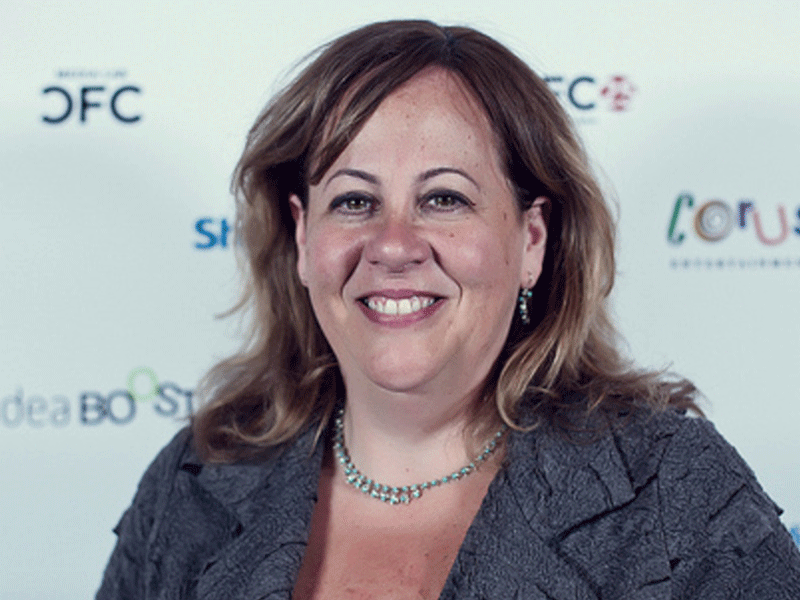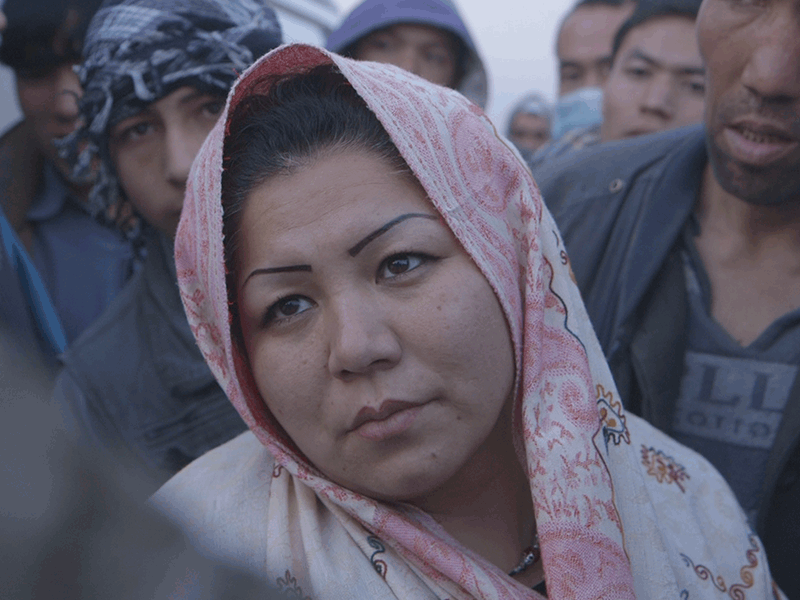Montreal-based film producer Ina Fichman says she wants to see as many premieres as she can during the Hot Docs Canadian International Documentary Festival in Toronto.
But that could be a tall order: Fichman is not just looking to raise money for two projects currently in the works, she is also presenting two completed films she produced that have already received critical and audience acclaim on the festival circuit.
The buzziest of those titles is The Oslo Diaries, the latest film from Israeli directors Mor Loushy and Daniel Sivan. The documentary takes an intimate, rarely seen look at the peace negotiations between Israeli and Palestinian leaders that occurred 25 years ago.

“Everyone’s trying to understand a little context of what’s going on in the Middle East today,” Fichman says. “One of the reasons that audiences, of all ages, are turning to documentaries is because everyone wants to make sense of it all.”
The film premieres at the TIFF Bell Lightbox on May 1 and screens at the Isabel Bader Theatre the following day.
While the Oslo Accords’ impact on the Middle East has been debated ever since, Fichman says the doc explores how close both sides got to achieving a mutual peace. It also contains a pivotal interview with Shimon Peres – one of the former Israeli president’s last on-camera addresses before his death in 2016.
“It’s a very emotional film,” says Fichman. “You cannot help but be touched by the commitment that these men, and a few women, (had) to try to find a solution.”
The Oslo Diaries had its world premiere at Sundance, where Fichman reports that the film was viewed favourably by moviegoers from across the political spectrum.
“I found it to be a film that, in its own way, has created this rapprochement for audiences,” she says.
The producer’s other festival entry, Laila at the Bridge, is set in Afghanistan. The documentary focuses on Laila Haidari, who runs rehab centres in a country where opium addiction is far too common.
Much of the film follows Haidari’s political activism, as she campaigns for government funding to keep her treatment facilities open.
Fichman wasn’t involved with Laila at the Bridge until most of the filming was complete. After watching the footage, she met with directors Elissa Sylvia Mirzaei and Gulistan Mirzaei and convinced them to make a trailer that would attract broadcasters.
However, pitching a film with subject matter as harrowing as Laila at the Bridge takes some effort. It did earn a major award from a documentary festival in Copenhagen recently, but has yet to be picked up by a North American broadcaster.
The presence of Haidari – who Fichman hopes will be able to fly to Canada for the festival – could make a big difference.
Haidari is “thrilled with the film,” Fichman says. “She also sees this film … as a way to bring attention to what she’s doing and potentially raise money for her (treatment) centre.”
The timing of Laila at the Bridge could also be in the producer’s favour. This year’s Hot Docs features a large number of titles focused on empowered, persevering women, as well as a shorts program called The Silence Breakers, which tells stories that should resonate with this #MeToo moment.
Meanwhile, half of the films premiering at the festival have women behind the camera – a parity that Fichman says she appreciates.
“I’m very sensitive to not just the fact that we need to promote the talented women in our industry, but we also have to ensure that when we take on a film, there are women on screen,” she says.
That foregrounding of women’s stories helped attract Fichman to a female-helmed documentary about whistleblowers at Lehman Brothers – a number of whom were women.
Fichman will pitch that documentary to financiers and industry reps at the festival. She also hopes to find more financial support for a virtual reality installation about the demise of the Dead Sea.
This year’s Hot Docs will also feature the world premieres of anticipated titles from Jewish Torontonians.
Michael Sparaga’s United We Fan is about the history of grassroots efforts to save a number of beloved TV series, such as Star Trek, from cancellation.
One of the festival’s hottest tickets is Torontonian Matthew Shoychet’s The Accountant of Auschwitz, which explores a stunning new chapter of Holocaust history, concentrating on the fascinating 2015 trial of Oskar Groening.
Other titles with a Jewish angle include two docs set in New York: 93Queen, about a hasidic woman who creates the city’s first all-female volunteer ambulance corps, and Barbara Rubin and the Exploding NY Underground, a portrait of the taboo-breaking, avant-garde filmmaker.
As for other under-examined Jewish directors, The Prince and the Dybbuk will introduce audiences to the incredible life story of Polish filmmaker Michał Waszynski.
And in a late announcement Barry Avrich tackles Harvey Weinstein, Jian Ghomeshi and much more in The Reckoning. It is scheduled to screen April 28 and May 5.
Hot Docs opens on April 26 and runs until May 6. Tickets are currently available at the festival’s website.
